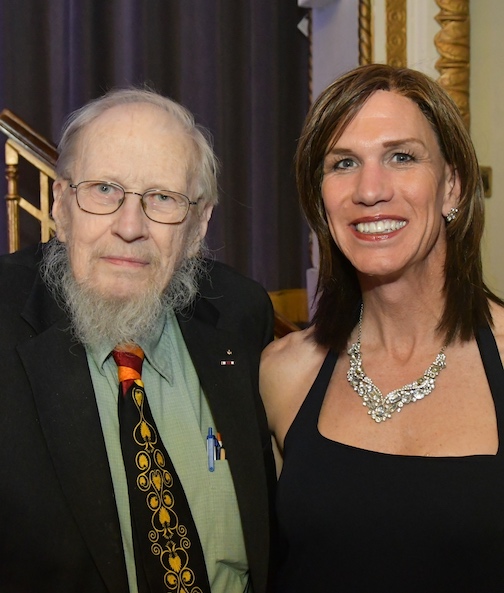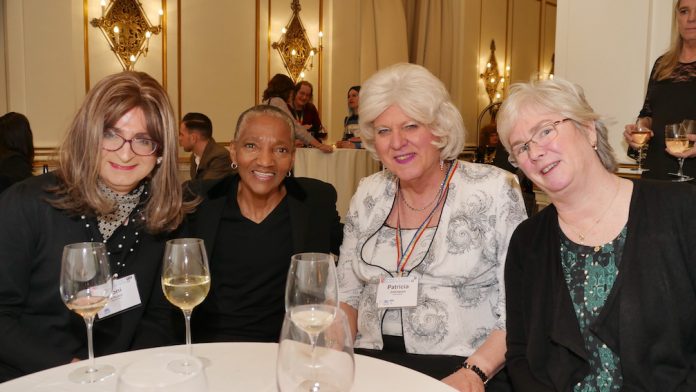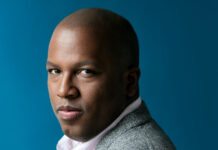[This column appears in the March/April 2020 issue of Boston Spirit magazine. Subscribe for free today.]
Back in the ’70s and ’80s mainstream America thought that the “gay community” was a separate entity—“those” people were outside the norm and lived their lives in different and unusual ways. Then, little by little, Americans started to realize that they had a neighbor who was a lesbian, or a coworker who was gay. Before long people had family members who identified as gay or lesbian. As more people came out, the more the world saw that gay and lesbian people were no different from themselves. With that awareness, much of the stigma began to dissipate, especially in urban areas.

Unfortunately, history repeats itself and we are back at the same moment in our social evolution; this time the group in question is the transgender and gender diverse community. We are only just taking our first steps into realizing that trans people are not “those” people but people we actually know at work and in our families.
One of the reasons that this process has taken so long is the lack of trans visibility. Candice St. James, outreach cochair for First Event, the annual conference for the Trans Club of New England (TCNE) says, “The trans community has an image problem…the problem is that there are no images of the full spectrum of trans people.” The ones who make a full transition and are more visible in their daily lives make up a much smaller portion of the whole trans community.
It may be helpful to look back into the recent past to understand what led to this stigma around fully transitioning. For many of our current trans elders, especially those over 70 there were very few pathways to express their identities. Unfortunately, the most common pathway for those who chose to come out and be their authentic self was to step out of their life as one gender, totally disappear, and then reappear in another city or state as a new person in a different gender. For these people this was essentially letting one identity die and being reborn as a new person.
This came at a huge price. This meant leaving behind friends, family, your job and everything you knew and starting over from scratch in a different place. Form there you were doomed to spend much of the rest of your life alone. The reason so many people came out much later in their life was a commitment to see certain obligations through such as getting their kids through college, or caring for their parents until they died or staying in their career till they retired. Then when they didn’t have as much to lose they could finally transition near the end of their life.
There were some extreme challenges in this. This meant cutting off all your ties to your social connections right at the time you were transitioning, which is the very time you need the most support. This also meant that the idea of a “trans community” was virtually impossible for those coming out late. There was such a stigma around transgender people that many shied away from contact with other trans people to avoid being identified by association.
In more recent times, others like St. James and Cheryl Katon, director of First Event, saw themselves evolving into a bi-gender lifestyle. Bi-gender means that they live their lives comfortably in two different genders. Both had too much to risk a full transition with high level corporate jobs other family obligations that needed to be fulfilled. So they functioned in two worlds; living one part of their life as a male and another as a female.
Katon says this is like being bilingual “you think in both languages but you can’t speak both languages at the same time.” To accommodate both lives Katon and St. James have two cell phones, two emails and two social media footprints. Both have the support of their families; they each have two children. St. James adds, “My children know and see her in various forms of gender expression, and they are fine with it. And both are also fortunate to have, what folks in their community call a “supportive spouse.” St. James’s wife of 30 years even attends the First Event conferences.
For both Katon and St. James, the decision to not fully transition is based on their high profile roles in the corporate world. St. James says, “There may be laws in Massachusetts that prevent me from being fired for being transgender, but I would not be accepted and they would find other ways to push me out.” In fact, at a recent diversity meeting her employer said, “We don’t have any transgender people in our company” and St. James knew quite a few colleagues like herself who were bi-gender. To maintain their separate lives both use the names Candice St. James and Cheryl Katon in their lives with TCNE and associated social circles. This protects their identities in their professional lives.
Katon plans to make a full transition in the near future. She will completely leave behind her male identity and step into a full life as Cheryl with her family, spouse and social circles instead of starting a whole new life from scratch. “I look forward to that time because, let me tell you it has been exhausting to live two separate lives.”
Our local trans community is incredibly fortunate to have leaders like Katon and St. James involved with the Trans Club of New England, because they are taking the group in bold new directions that are already addressing the “image problem” that St. James joked about.
For starters, the TCNE, formally The Tiffany Club, used to hold their annual conference at a hotel out in the suburbs. “It was a great experience, we took over the entire hotel, but it was basically just another closet as people didn’t have to risk being seen there.” This year the conference was held downtown at the prestigious Park Plaza Hotel. “This was a daring risk for many of us. When the elevator door opened up every day you didn’t know what cisgender person would get on with you, but it all went so well. It was wonderfully empowering to be so open in public.”
Katon, herself 52, says she wanted to honor the legacy of the older trans generation. They were the ones who were so bold to transition and say to the world, “this is who I am!” She wanted to make bold moves like moving their conference downtown so the they could reach out to younger generations and people of color who might not be able to commute to the suburbs. This would naturally increase community by making their social networks more multigenerational. That way folks don’t have to go through those first few challenging years of transitioning alone, especially for folks dealing with the effects of hormone treatments.
They have even expanded their weekly drop-in groups, which occur on Tuesdays and Saturdays, and now they’ve added a Wednesday educational workshop with sponsors. TCNE is getting ready to launch new drop in groups for youth and people of color. Katon and St. James hope that these new opportunities and the visibility of the conference in downtown Boston will be a beacon to the hundreds of folks who are living their identities in secret because now they can have an opportunity to step out and explore a deeper transition with the support of a community. Hopefully this support will then extend into their own circle of friends and families ending the old patterns of letting one identity die off and a brand new one being reborn far away. With the work of Caton and St. James and their fellow leaders at The Trans Club of New England that community is waiting with open arms to guide them every step of the way. No one needs to do this alone!
To learn more about First Event or the Trans Club of New England visit tcne.org.
Bob Linscott is assistant director of the LGBT Aging Project at The Fenway Institute
Not a subscriber? Sign up today for a free subscription to Boston Spirit magazine, New England’s premier LGBT magazine. We will send you a copy of Boston Spirit 6 times per year and we never sell/rent our subscriber information. Click HERE to sign up!









